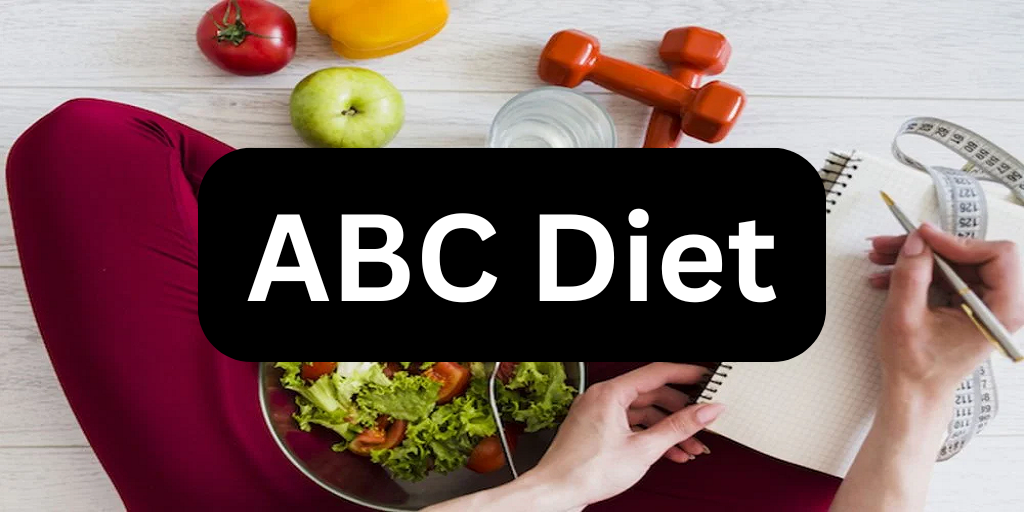In the world of dieting and weight loss, numerous programs and trends have emerged that promise quick results. Among these, the ABC diet has gained significant attention, particularly due to its extreme and controversial nature. While some people claim it helps them achieve their weight loss goals, others caution against its potential health risks. In this blog, we’ll dive deep into the ABC diet, discussing what it is, how it works, its potential risks, and whether it’s a sustainable option for healthy living.
What is the ABC Diet?
The ABC Diet, short for the Ana Boot Camp Diet, is an extreme calorie-restriction diet that became popular in certain online communities. It’s known for its harsh calorie limitations and structured cycle, which last for 50 days. The goal of the diet is rapid weight loss, and it requires strict adherence to a daily calorie intake that fluctuates throughout the program.
The ABC Diet is particularly controversial because it encourages a dangerously low intake of calories. On some days, dieters are allowed only 100 calories, which is far below the recommended minimum for maintaining basic body functions. The severe restriction is what allows individuals to lose weight quickly, but it can also have dangerous health consequences.
How Does the ABC Diet Work?
The primary concept of the ABC Diet revolves around shocking the body with extreme calorie fluctuation. The theory behind the diet is that by varying calorie intake each day, the body will not enter starvation mode, which could slow down the metabolism. Proponents believe that this fluctuating pattern confuses the metabolism, forcing it to burn more fat while reducing the likelihood of hitting a weight loss plateau.
Here’s how the ABC Diet typically works:
- Calorie Restriction: Over the course of 50 days, individuals are expected to consume very low amounts of calories. The calorie count varies daily but is often between 100 to 800 calories.
- Refeeding Days: The diet includes certain “higher” calorie days (though these are still quite restrictive), which are meant to give the body some respite from the severe restriction.
- Starvation Days: In the most extreme cases, some versions of the ABC Diet include fasting days where no calories are consumed at all.
The extreme calorie deficit over a prolonged period causes rapid weight loss. However, the results come at the expense of overall well-being, as the body is deprived of essential nutrients and energy.
The Diet Plan in Detail
The ABC Diet follows a 50-day plan, during which the daily calorie intake changes to keep the body from adapting to the low-calorie intake. Below is a sample breakdown of the first 10 days of the ABC Diet:
- Day 1: 500 calories
- Day 2: 500 calories
- Day 3: 300 calories
- Day 4: 400 calories
- Day 5: 100 calories
- Day 6: 200 calories
- Day 7: 300 calories
- Day 8: 400 calories
- Day 9: 500 calories
- Day 10: Fast (no calories)
As you can see, the calorie allowance fluctuates daily, and fasting is incorporated into the program. This type of plan continues for the remainder of the 50-day cycle, with slight variations in calorie count and fast days.
It’s important to note that the ABC Diet does not provide specific food recommendations, meaning individuals are free to choose what they eat as long as they stay within the calorie limit. However, due to the extreme restriction, dieters often turn to low-calorie foods like vegetables, broth-based soups, and fruits.
Potential Benefits of the ABC Diet

Despite the dangers associated with it, proponents of the ABC Diet claim that there are several benefits to the program:
Rapid Weight Loss:
The primary allure of the ABC Diet is the promise of rapid weight loss. With such a low-calorie intake, it’s almost guaranteed that dieters will lose weight quickly. This may be appealing to those who need to drop weight for a specific event or timeline.
Breaking Plateaus:
Some individuals who have tried the diet report that the constant fluctuation of calorie intake helps to break through weight loss plateaus. This is based on the idea that by alternating high and low-calorie days, the body’s metabolism remains active.
Mental Discipline:
The diet is incredibly strict, and some people find that adhering to such a rigorous plan helps them develop mental discipline. Sticking to the low-calorie restrictions day after day can feel like an accomplishment in itself for some.
However, while these may seem like potential benefits, they are often outweighed by the health risks involved.
Health Risks Associated with the ABC Diet
The extreme nature of the ABC Diet puts individuals at serious risk for a number of health issues. Here are some of the most significant dangers:
Nutrient Deficiencies:
One of the most pressing concerns with the ABC Diet is that it deprives the body of essential nutrients. With such a low-calorie intake, it is impossible to consume adequate amounts of vitamins, minerals, and other nutrients necessary for optimal health. This can lead to malnutrition and associated health problems, such as weakened bones, hair loss, and a compromised immune system.
Slowed Metabolism:
While the ABC Diet claims to prevent the body from entering starvation mode, it’s impossible to avoid it entirely with such a low-calorie intake. Prolonged calorie restriction slows the metabolism, meaning that over time, the body becomes more efficient at holding onto fat stores, which can make future weight loss even more difficult.
Muscle Loss:
The body will begin to break down muscle tissue when it isn’t receiving enough calories to sustain itself. This can lead to a loss of muscle mass, which is detrimental for overall health and can negatively impact metabolism.
Heart Health Issues:
Severe calorie restriction can have a negative impact on the heart. Starvation diets like the ABC Diet can lead to electrolyte imbalances, arrhythmias (irregular heartbeats), and in extreme cases, heart failure.
Mental Health Impact:
The ABC Diet can also take a significant toll on mental health. The obsession with calorie counting and weight loss can lead to or exacerbate disordered eating patterns, including anorexia and bulimia. Additionally, the physical effects of malnutrition, such as fatigue and irritability, can further contribute to a decline in mental well-being.
Why is the ABC Diet So Controversial?
The controversy surrounding the ABC Diet primarily stems from its potential to promote unhealthy and dangerous behaviors related to food and body image. It has been linked to pro-anorexia communities, where extreme dieting and calorie restriction are encouraged, often at the expense of health and well-being.
Many health professionals strongly discourage the ABC Diet because of its severe restrictions and the high likelihood of developing physical and mental health problems. The diet’s focus on extreme calorie reduction, rather than balanced nutrition, raises serious concerns about its long-term impact.
Is the ABC Diet Sustainable?
The simple answer is no. The ABC Diet is not a sustainable or healthy approach to weight loss. Any weight lost on the diet is likely to be temporary, and individuals may regain the weight once they return to normal eating patterns. Additionally, the health risks associated with such extreme calorie restriction make it a dangerous long-term option.
Sustainability is key to any successful diet plan, and the ABC Diet does not provide a practical way to maintain weight loss or overall health in the long run. A balanced, nutrient-rich diet combined with regular physical activity is a much healthier and more sustainable approach.
Alternatives to the ABC Diet for Healthy Weight Loss
For those looking to lose weight in a healthy, sustainable way, there are many alternatives to the ABC Diet that focus on balanced nutrition, gradual weight loss, and long-term maintenance. Some effective and safe approaches include:
Calorie Deficit with Balanced Nutrition:
A moderate calorie deficit, combined with a well-balanced diet rich in whole foods, is a sustainable approach to weight loss. Instead of drastically cutting calories, aim to reduce your daily intake by 500-1000 calories to promote gradual weight loss while still nourishing your body.
Intermittent Fasting:
Intermittent fasting involves alternating between periods of eating and fasting. Unlike the ABC Diet, intermittent fasting does not impose extreme calorie restrictions but instead focuses on when you eat. This approach may help with weight loss while still allowing for a reasonable calorie intake during eating periods.
Mindful Eating:
Mindful eating encourages individuals to focus on the quality of food and their hunger cues rather than strictly counting calories. This approach can help develop a healthier relationship with food and promote weight loss over time without the need for severe restrictions.
Incorporating Physical Activity:
Physical activity is a crucial component of any healthy weight loss plan. Instead of focusing solely on calorie restriction, combining a balanced diet with regular exercise can help promote fat loss, preserve muscle mass, and improve overall health.
Final Thoughts
While the ABC Diet may seem appealing due to its promise of rapid weight loss, the risks far outweigh any potential benefits. Extreme calorie restriction is not a sustainable or healthy approach to achieving your weight loss goals. Instead, it’s important to focus on long-term changes that prioritize both physical and mental well-being.
For those seeking a healthy way to lose weight, it’s always best to consult with a healthcare professional or a registered dietitian to develop a personalized plan that promotes gradual, sustainable progress. Remember, the goal is not just to lose weight but to adopt a healthier lifestyle that you can maintain for the long term.
Read Also
Eating Processed Meats Raises Type 2 Diabetes Risk
